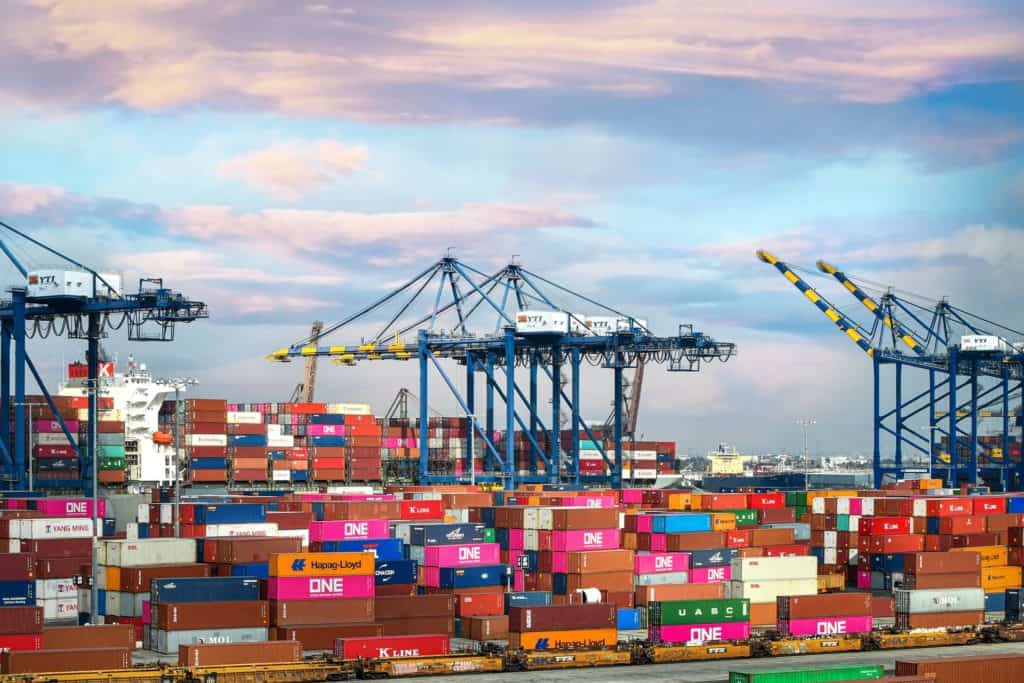
As a manufacturer, you’re no stranger to the supply chain shortage. Delayed shipments of raw materials are making it difficult, and often impossible, for producers to ship their products on a consistent schedule.
No matter your industry, this global slowdown could be costing you time, money, and even customers.
Fortunately, supply chain shortages don’t define your business. You can still compete.
The Lean manufacturing consultants at Campbell Corp. understand the challenges that manufacturers face in 2022. We’re here to help you overcome supply chain delays, so you can best serve your customers.
Here are some steps your organization can take to regain control of your inventory and maintain a predictable delivery schedule.
How Can You Sustain Revenue Through The Supply Chain Shortage?
Remember, every manufacturer has unique pain points during difficult times. Our Lean consultants provide tailored advice to each of our clients. However, these general tips will help you rework your manufacturing processes and prioritize profitability.
Find Alternative Suppliers
When your tried-and-true vendors are unable to deliver, you may feel upstream without a paddle. However, there are other options. It may be time to consider an alternative supplier–specifically, a domestic one.
Yes, purchasing parts and raw materials from a domestic vendor may be more expensive. But this higher cost is often worth it. The opportunity cost of failing to ship is often more expensive than a temporary rise in your cost of goods sold.
Footing the bill to buy from the supplier down the street could mean a more predictable delivery schedule (and happier customers!) in the short term, and this will pay off in the long term.
Consider Your Transportation Options
Supply chain shortages are complex, but many of the problems stem from ships tied up in international ports. If shipping delays are slowing down your operations, consider transportation alternatives.
Splurging on expedited freight shipping and delivery methods like airfreight may help you get your items more quickly. Again, these are higher-cost options. Talk to your manufacturing consultant about whether increasing expenses in this area will help you sustain profit.
Implement Pull Manufacturing
One of the main challenges that manufacturers face is producing the correct number of products. You need to accurately predict which products will be most in demand, and this can lead to wasted raw materials if you forecast incorrectly.
This is where pull manufacturing comes in.
Pull manufacturing is a Lean methodology in which manufacturers produce products based on actual, rather than forecasted, demand. This system takes the guesswork out of sourcing parts and raw materials.
How does this connect to supply chain shortages? You won’t waste time or inventory waiting around for raw materials that you never needed in the first place.
Be Proactive With Your Vendors
Communication is key in unpredictable business climates. Don’t hesitate to communicate directly with your suppliers and ask when they expect to receive/ship raw materials.
When you have a clear picture of when your materials will arrive, you can plan accordingly. This could mean cancelling your order and purchasing from a domestic supplier, for example.
Maintain Safety Stock
While we want our customers to practice Lean methodologies as often as possible, we also want you to remain profitable. In some cases, we’ll recommend that our clients maintain safety stock. Overcoming an unpredictable supply chain isn’t easy and, extra inventory may be what you need to fulfill customer orders right now.
Our Lean Consultants Are Here to Support You
Coping with supply chain shortages is difficult, and every manufacturer will need to take different steps to sustain their revenue streams. The Lean manufacturing consultants at Campbell Corp. will recommend custom solutions for your unique production needs, now and in the future.
Contact us today to discuss how supply chain shortages have affected your business. You can also call us directly at (414) 421-7601.
